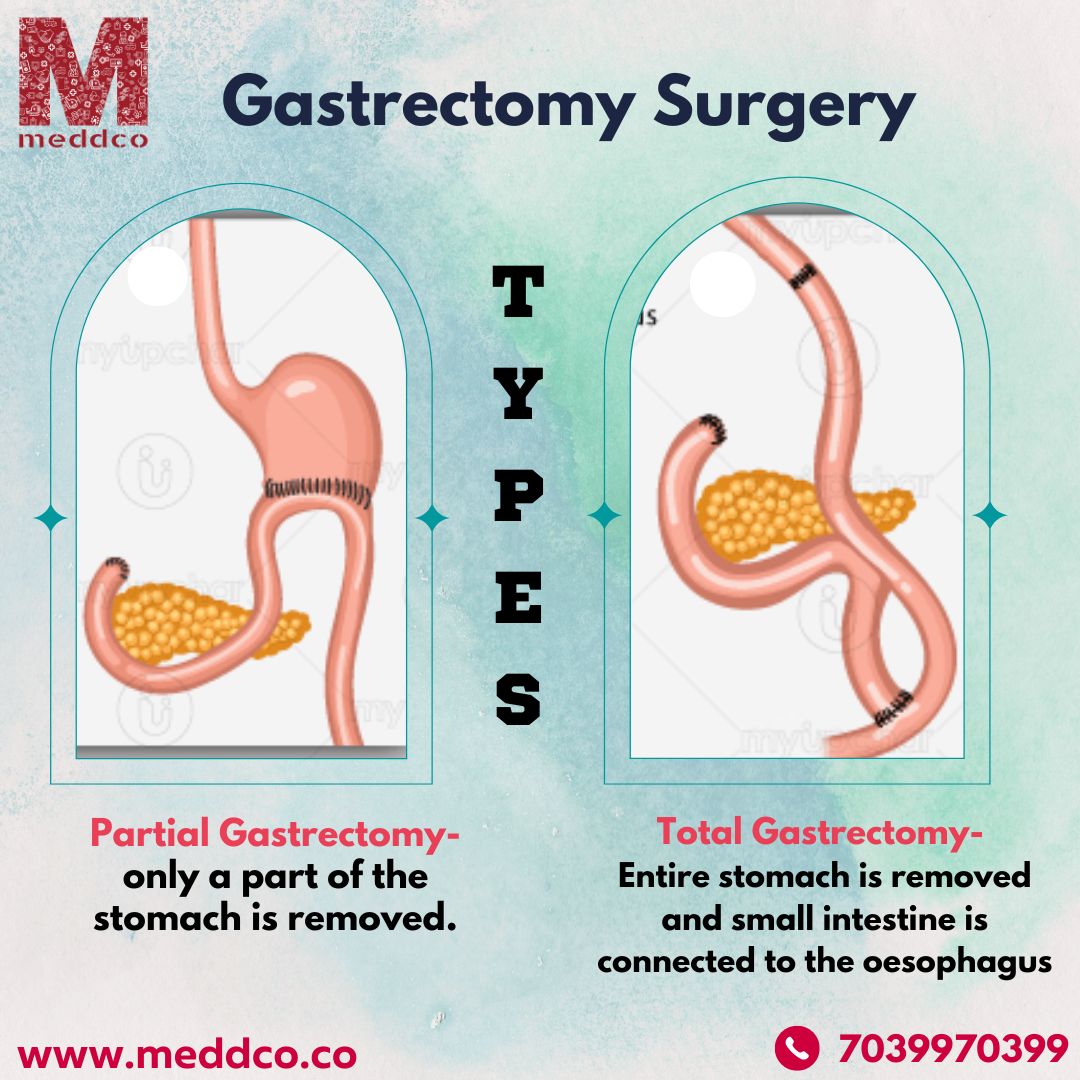

: Admin : 2023-01-07
Stomach total gastrectomy is a major surgical procedure to remove the entire stomach. It is generally performed to treat certain types of stomach cancer, such as advanced gastric cancer or gastric carcinoid tumors. The procedure is also sometimes used to treat severe gastric ulcer disease or reduce the risk of developing certain cancers, such as stomach, oesophageal, and colorectal.
The procedure involves making an incision in the abdomen and removing the entire stomach, including the esophagus, the cardia of the stomach, the pylorus, the greater and lesser curvatures, and the fundus. The remaining part of the esophagus is then connected directly to the small intestine. After the procedure, the patient is usually fed through a feeding tube to allow for better absorption of nutrients.
About Stomach Total Gastrectomy Surgery:
Stomach total gastrectomy surgery is a procedure that removes the entire stomach. This is also known as total gastrectomy. The surgery treats stomach cancer or other stomach diseases such as stomach ulcers or severe bleeding.
During the surgery, the surgeon will remove the entire stomach, including the esophagus, the lower part of the esophagus, and the duodenum. The surgeon will then attach the esophagus directly to the small intestine. This allows food to pass directly from the esophagus to the small intestine, bypassing the stomach.
Once the stomach is removed, the surgeon will close the wound with sutures or staples. The patient will usually stay in the hospital for several days after the surgery to recover and to monitor for any complications. During this time, the patient will be on a clear liquid diet and may need antibiotics to prevent infection.
After the surgery, the patient’s eating habits will need to be adjusted. The patient will need to eat smaller meals more often and chew food thoroughly. The patient may also need to avoid certain foods, such as high-fat or high-fiber foods until their digestive system has healed.
The risks associated with stomach total gastrectomy surgery include infection, bleeding, and damage to nearby organs. The risk of complications increases with age, so discussing the risks with your doctor before having the surgery is important.
Steps for Stomach Total Gastrectomy Surgery:
1. Pre-surgical Preparation: This includes obtaining a complete medical history, a physical examination, and any necessary tests, such as blood tests and imaging studies. Patients are typically counseled regarding the risks and benefits of the procedure. They may be prescribed medications, such as antibiotics, to help reduce the risk of infection.
2. Anaesthesia: The patient is placed under general anesthesia before the start of the surgery, which renders them unconscious and insensate.
3. Accessing the Stomach: The surgeon will make an incision in the abdomen and then access the stomach by either cutting through the abdomen wall or creating a small hole in the abdominal wall, known as a laparoscope.
4. Dissection of the Stomach: After the stomach has been accessed, the surgeon will carefully dissect the stomach and surrounding organs. This may involve cutting away some of the surrounding fat and tissue to gain access to the stomach.
5. Disconnection of the Stomach: Once the stomach has been accessed, the surgeon will carefully disconnect the stomach from the surrounding organs, such as the esophagus and small intestines.
6. Closure of the Wound: Once the stomach has been removed, the surgeon will carefully close the wound, typically using sutures.
7. Post-operative Care: The patient will be monitored in the intensive care unit for the first 24-48 hours after the surgery. Antibiotics and other medications may be prescribed to help reduce the risk of infection. The patient may also be given special diets to help reduce the risk of dehydration and other complications.
Precautions after Stomach Total Gastrectomy Surgery:
Following are the precautions one must take after the Stomach Total Gastrectomy Surgery:
1. Take medications as prescribed by your doctor.
2. Monitor your calcium and vitamin B12 levels and supplement as necessary.
3. Follow a low-fat diet with smaller and more frequent meals.
4. Avoid gas-producing foods such as broccoli, cabbage, and beans.
5. Take antacids regularly to reduce acid reflux.
6. Avoid drinking alcohol and smoking.
7. Follow an exercise program and stay active.
8. Monitor your weight and seek medical advice if you experience significant changes.
9. Wear loose clothing and avoid tight waistbands.
10. Avoid strenuous activities and heavy lifting.
11. Wear a medical alert bracelet in case of emergency.
12. Take regular breaks when working or exercising.
13. Check with your doctor before taking any over-the-counter medications.
14. Avoid eating large meals, as this can cause nausea and vomiting.
15. Rinse your mouth with water or mouthwash after meals to reduce the risk of infection.
16. Follow up regularly with your doctor for check-ups.
MEDDCO.COM is India's first digital pricing online platform, where price transparency is the key.
Our website allows users to search for surgical procedure diagnostic tests and other healthcare services amongst various hospitals and
a healthcare provider.
On our website, you can find the best package price for Gastrectomy. You can also book an online appointment through our website.
For more information visit our website.
gastrectomy surgery treatment stomach surgery stomach cancer gastric tumor
No Comments